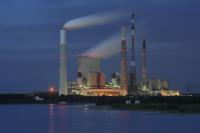On his NY Time’s DotEarth blog, journalist Andy Revkin writes:
This enduring notion — that the world can have its coal and climate, too, by pumping the carbon dioxide from combustion into the earth — has been promoted by institutions including Peabody Energy, the world’s biggest coal company (see its coal-sales ticker here), and the Natural Resources Defense Council. A group that pushed the clean-coal theme at the Democratic convention, the American Coalition for Clean Coal Electricity, will be heading to the Republican convention next week. Environmentalists have attacked the group as the latest in a string of industry propaganda mills.”
Thanks for the link to DeSmog Andy!
Subscribe to our newsletter
Stay up to date with DeSmog news and alerts







